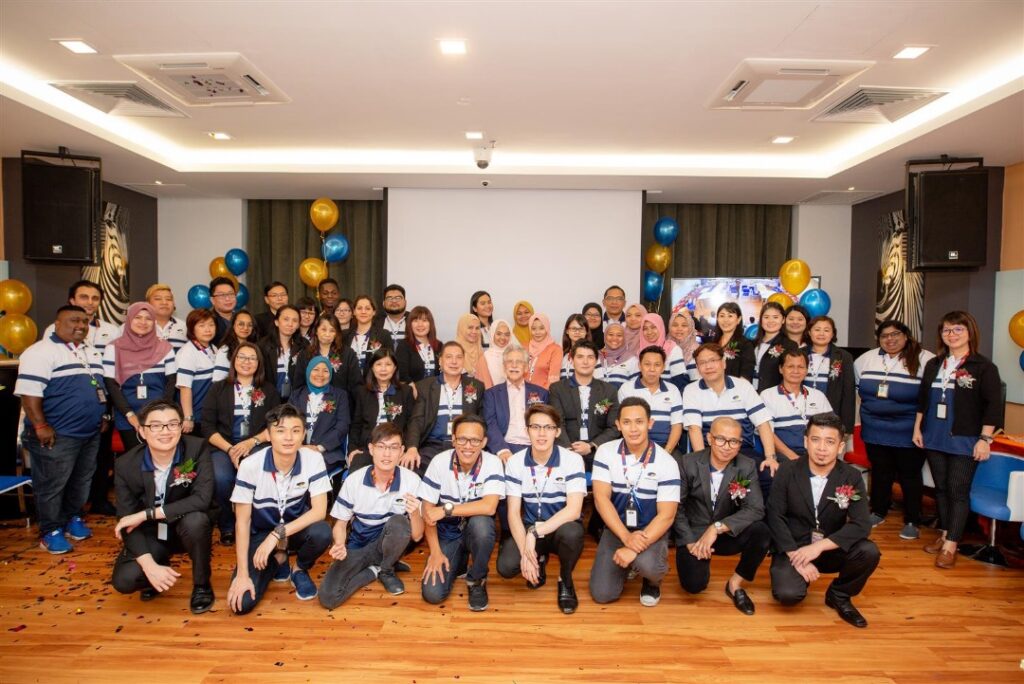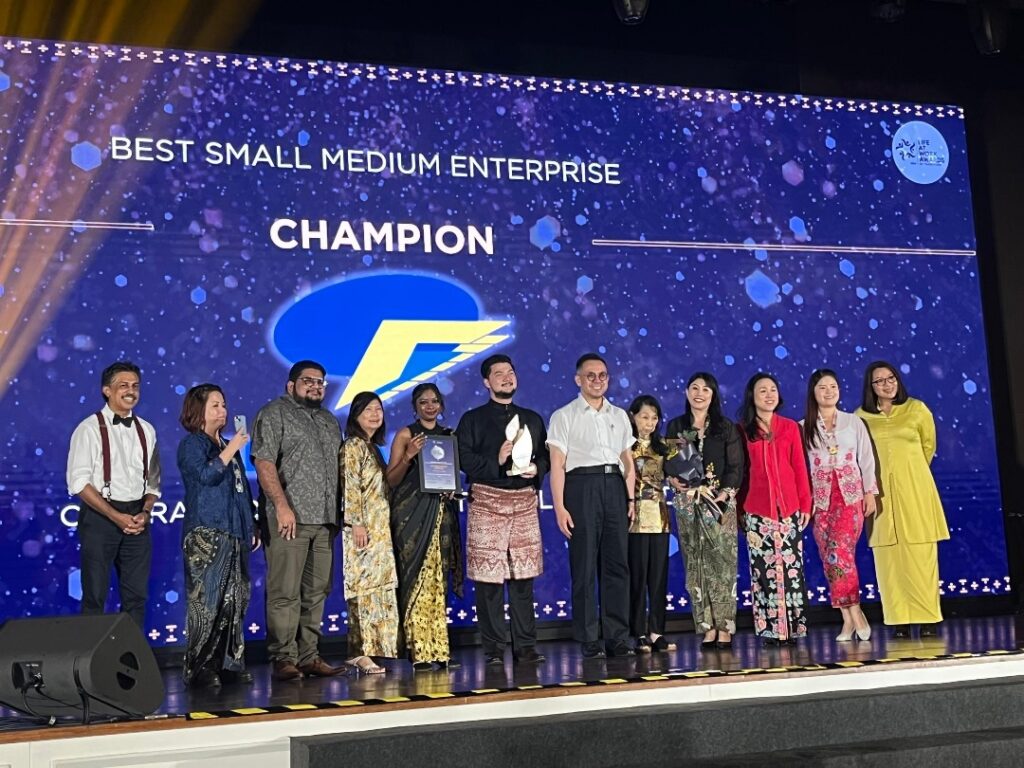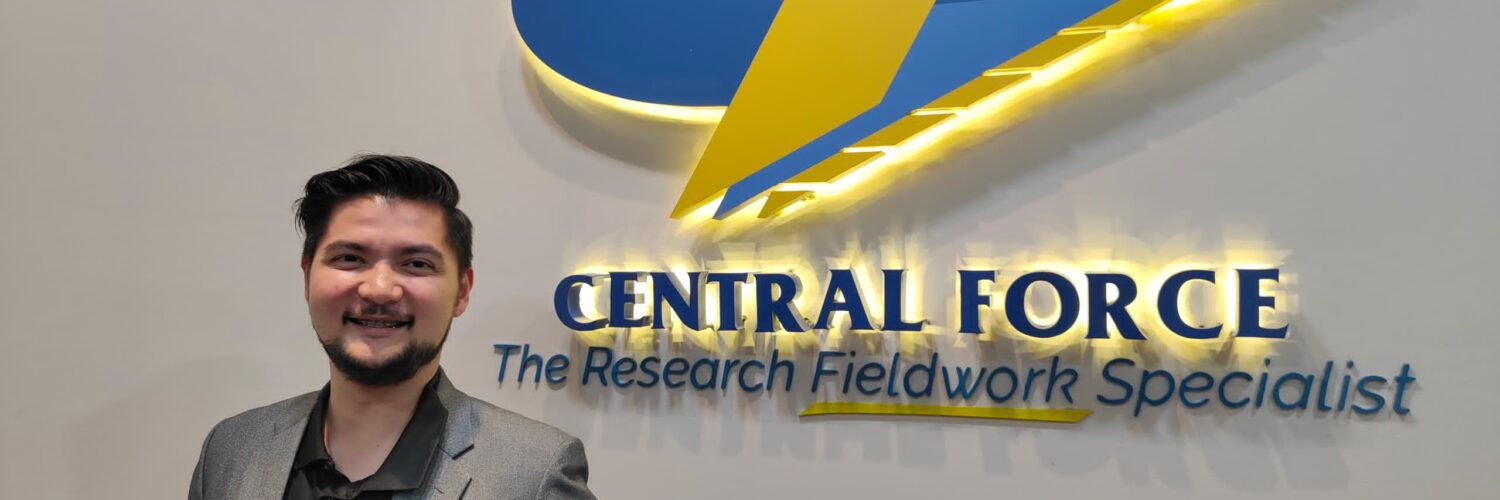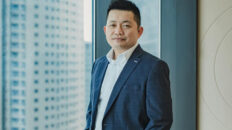Demystifying Market Research for SMEs
“Businesses overthink what market research is,” shared Wai Yu. “They think it requires a lot of money, time, and a big team of analysts. But in reality, it’s about asking the right questions that can take you from point A to point B in your business journey.” He added that the essence of research lies in clarity and guidance, understanding what decision needs to be made, and identifying what needs to be asked to support that decision.
Often, the misunderstanding lies in overcomplicating the process. Wai Yu drew a simple parallel: deciding where to have lunch. “You think about what’s nearby, how much time you have, your budget, and any dietary restrictions. You ask questions to get an answer. That’s research.”
Everyday Data, Real Business Value
For SMEs, it’s the same principle. A nasi lemak stall receiving regular customer feedback has already conducted informal research. The real opportunity, says Wai Yu, is helping businesses learn to structure and link these data points to actionable outcomes.
“They might hear, ‘Your sambal is too spicy’, but what do you do with this information? Input becomes powerful if you can systematically gather, categorise and act on it.”
He pointed out that many SMEs constantly receive insights from employees, customers, and peers but often treat them as just opinions. “When structured well, those opinions become insight. And insight drives better decisions.”
This ability to draw insight becomes especially important in fast-changing markets. According to Wai Yu, the speed at which consumer preferences evolve today has made outdated data almost irrelevant.
“I always tell clients: old data is bad data. Today, preferences can shift overnight. One Instagram post can change a buying decision. You can no longer rely on methods that worked five or ten years ago.”
This shift is particularly evident when businesses try to engage with Gen Z. “They’re still applying millennial or Gen X strategies to a new generation with a different mindset,” Wai Yu explained.
He cited a recent case involving a premium retailer looking to attract Gen Z consumers. Through focus group sessions, Central Force found that Gen Z prioritised simplicity, convenience, and a strong alignment with social and environmental values. “They want brands that reflect their values. If your supply chain disregards animal rights, they’re out. It’s that crucial.”
Research that Grounds
When thinking about market research, the mind often jumps to retail, but Central Force’s reach extends far beyond. “We’ve done research across almost all industries—agriculture, healthcare, consumer goods, and even social opinion studies,” said Wai Yu.
For business-to-consumer (B2C) segments like retail, respondents are generally the end customers—the people who buy the products. However, the strategy shifts in business-to-business (B2B) segments, to may include other stakeholders. Wai Yu shared an example from a recent market study for a foreign healthcare client looking to introduce multifunctional medical equipment into Malaysia. The client assumed that space-saving, multi-use functionality would be a major draw for local hospitals.
“But when we spoke to hospital engineers and radiologists, the feedback surprised us,” said Wai Yu. “Efficiency trumped consolidation. Hospitals preferred multiple machines that could run single scans simultaneously, instead of one that could do multiple scans, allowing for higher patient throughput.”
Based on these insights, Central Force advised the client to reconsider entering the market — a recommendation grounded in real, on-the-ground operational realities.
A Collaborative Approach to Insight

Beyond the insights, what sets Central Force apart is how it works with clients. The firm employs a transparent, collaborative approach. “We don’t just present data. We involve our clients in the process — from how we source sampling respondents to how we frame questions. When they (the client) understand why we ask what we ask, they get better at applying the insights.”
That involvement often surfaces new perspectives. “When clients get hands-on, they realise the research touches more business areas than expected. That’s when the magic happens — we can align and synthesise those challenges in one clear direction.”
It’s not uncommon for a project that starts with a simple objective — testing a marketing message — to expand into a broader strategic conversation. “Once we begin walking through the data together, clients start making connections across stakeholders — marketing realises there’s a customer service angle, or HR sees something in employee feedback that links to product performance. Suddenly, the insight becomes a unifier that tackles a systemic challenge.”
Central Force intentionally cultivates this integrated view. The team sees research not as a siloed deliverable but as a living conversation that cuts across business functions. “By co-owning the process, clients become invested not just in the answers but in asking better questions. That’s the shift we aim for—from consuming insights to thinking insightfully.”
That’s the shift we aim for—from consuming insights to thinking insightfully.
Leveraging AI to Scale With Purpose
As the volume of research grows, so does the need for tools that enable speed and scalability. Central Force has embraced artificial intelligence (AI) to accelerate its processes — not as a replacement but as an enabler.
“We do long interviews and focus groups. Manually transcribing and reviewing 100 sessions would take weeks. With AI, we can transcribe and extract key quotes in a day. But interpretation still needs a human lens. That’s where our analysts come in,” he explained.
They’re also developing an AI-powered moderator trained on Central Force’s own human researchers. The moderator will be built to detect emotional cues, tone, and body language and respond with empathy. “It won’t replace human interaction, but it helps us scale and lower the cost for clients without compromising insight.”
Data privacy remains paramount. “We don’t use free tools. If it’s free, your data will be the payment for the free service. We use secured, private systems because we handle highly sensitive client material,” Wai Yu stressed.
Market Research Within Reach
Regarding affordability, Wai Yu emphasised that good research doesn’t have to break the bank. “You don’t need to interview 1,000 CEOs. You might only need to talk to the procurement manager who makes the recommendation. That change alone could cut your cost.”
Instead of pursuing volume, Central Force helps clients focus on precision. “The question is: who influences the decision? If you identify the right stakeholder or audience, you get better data faster, at a fraction of the cost.”
For Wai Yu, the heart of market research lies in empathy and alignment. He emphasises the importance of understanding a client’s business goal before launching any project.
“When someone says, ‘I want to do research,’ I always ask, why? What triggered this need? If it’s unclear, we could solve the wrong problem. For example, if the objective is to increase team morale, the questions must focus on employee motivation, direction, and culture. The research must fit the goal.”
Growing With Clients, Giving Back to Communities

That same clarity drives Central Force’s growth strategy. Wai Yu envisions the firm becoming the definitive name in Malaysian market research. “When people think of a Malaysian research company, I want them to think of Central Force. We want to be the brand that grows with our clients.”
One way they’re giving back is through a soon-to-launch pro bono initiative called “Local Support Local,” designed to help micro-businesses like hawkers and family-run shops use research to make smarter decisions.
“We want to support the makcik, the kedai runcit, the hardware shop uncle we grew up with. Help them understand customer preferences. That’s insight that can boost sales. We want to be the people who help them see that.”
Central Force is also expanding to Singapore. With its high labour costs but deep demand for insight, Wai Yu sees an opportunity to deliver Singapore-grade quality using Malaysian talent.
“We can provide high-quality, relevant research using our Malaysian team. That makes us more cost-effective and gives clients an edge.”
Let the Data Speak
“Don’t enter research with a fixed idea of what the data should say. Let it surprise you. Even if the results are tough to hear, they’re still valuable. If your customers tell you how to improve, that’s a blessing. Act on it.”
Wai Yu added that the same openness applies when research is used for the public good. “We’re not just here for commercial outcomes. Talk to us if you’re an NGO, a social enterprise, or a public-serving organisation. We would like to support you with pro bono research that contributes to a better, more inclusive society.“
Assumptions can lead businesses astray; firms like Central Force are helping businesses ask better questions, hear clearer answers, and move closer to the outcomes that matter most.









